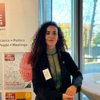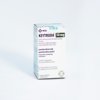Fritextsökning
Artiklar per år
Innehållstyper
-

Rise and Scantox cease conducting animal testing in Stockholm
Access to in vivo toxicology services is significantly decreasing in the Stockholm area as Rise shuts down animal testing and Scantox reorganizes. ”The costs are high, and demand is weak”, says the division manager at Rise to Life Science Sweden.
-

Large study on milk: Risky for women but not for men
The risk of ischemic heart disease (IHD) and acute myocardial infarction (MI) increased for women with milk intake levels higher than 2 glasses per day, while no such association was found in men, according to a new large Swedish study.
-

Anna Törner: ”If I fall seriously ill, I’ll move to Finland”
”It is both undignified and undemocratic that cancer patients must travel to Finland to uphold a façade of fairness that does not truly exist”, Anna Törner writes in a column.
-

In search of Marcel Proust's lost health
A great writer, but also a weak person and a hypochondriac. That has been the usual image of Marcel Proust. But the pediatrician and literary scholar Carl Lindgren paints a partly different picture in a new book about the French master's life, health
-

Investigations against AstraZeneca: ”Chinese interests may be behind them”
Why are there several investigations against AstraZeneca employees in China right now? Life Science Sweden continues to seek answers.
-

Trumps nya FDA-chef varnar för "massiv övermedicinering"
Donald Trump har nominerat kirurgen och författaren Marty Makary till ny chef för den amerikanska läkemedelsmyndigheten FDA, som enligt den tillträdande presidenten har ”förlorat amerikanernas förtroende”.
-

The key to successful collaboration between industry and academia
Why is collaboration between industry and academia necessary in the life sciences sector? What obstacles exist, and what is the key to successful collaboration?
-

Lilly´s Nordic manager on Mounjaro launch in Sweden: "Patients deserve respect"
Another blockbuster diabetes and obesity drug has made its way into the Swedish market – with promises of a stable supply and availability for patients. “What we see is a significant unmet need, so we are expecting to have quite a good welcoming in the market", says Daniel Lucas, Managing Director Nordic Countries at the American pharmaceutical giant Eli Lilly.
-

”The importance of stratification in a statistician’s August kitchen”
Ingrid Lönnstedt writes about an experiment of her own at home and about what lessons can be learned from it, in a science column.
-

Leo Pharma to cut 200 jobs and reorganize
Danish Leo Pharma cuts down on staff in its global operations. Around 200 positions will be cut, while 50 will be moved to Poland.
-

Danska läkemedelsfonder investerar i talangfabrik
Novo Nordisk Foundation, Lundbeck Foundation och Leo Foundation investerar 123 miljoner danska kronor, motsvarande omkring 188 miljoner svenska kronor, i ett nytt utbildningscentrum för Köpenhamns universitet och Syddansk universitet i Odense.
-

Astra Zeneca-medarbetare gripna i Kina
Fem nuvarande eller tidigare anställda hos Astra Zeneca har gripits av kinesisk polis, misstänkta för smuggling och överträdelse av Kinas dataskyddslagar
-

MSD discontinues two Keytruda trials
MSD has stopped two late-stage trials that tested its blockbuster immunotherapy Keytruda as a treatment for skin and lung cancer.
-

Kris för hajpat genredigeringsbolag – ”Stämningen har skiftat”
Upp som en sol, ner som en pannkaka. Så kan utvecklingen för det upphaussade amerikanska genredigeringsbolaget Tome Biosciences beskrivas.
-

Anna Törner: Yes, I Am Sick, But Not Weak
”People often say that someone who is ill only has one wish—to get better. But I think that is not true. Someone who is ill also longs to be understood, to be respected, to not have their identity overshadowed by their condition”, writes Anna Törner in a column.
-

Danish biotech to buy struggling American oncology company
Danish drugmaker Pharmacosmos has agreed to acquire American pharmaceutical company G1 Therapeutics in a deal that amounts to 405 million dollars.
-

The investor: “The major common diseases are hot again”
She has previously been voted Investor of the Year and will now be moderating The Future of Swedish & Danish Life Science congress. We check the temperature of the industry with Nina Rawal from Trill Impact Advisory.
-

Dansk aktör köper krisande amerikanskt cancerbolag
Danska Pharmacosmos tar över det amerikanska läkemedelsbolaget G1 Therapeutics i en affär som uppgår till 405 miljoner dollar.
-

Ny mpox-variant sprids från Kongo – ökad efterfrågan på vaccin
En dödligare variant av mpox sprids från Demokratiska Republiken Kongo och utgör en risk för barn. Viruset orsakar feber, huvudvärk, muskelvärk, smärtsamma bölder på huden, och sprids genom nära kontakt men är sällan dödlig, enligt NBC News.
-

Uppgifter: Sanofi tar in bud på konsumenthälsodivision
Den franska läkemedelsjätten Sanofi ska enligt uppgifter ha bett om initiala bud för sin konsumenthälsoverksamhet, som är värderad till runt 20 miljarder dollar.
-

Gothenburg, the city of life science – We are ‘Little Boston’
Western Sweden is investing in life science within everything from advanced therapeutic drugs to femtech. At the same time, stakeholders are looking to other industries for inspiration and knowledge.
-

Nobel Prize winner Torsten Wiesel turns 100: “Old men like me should use their experience to help the young”
In 1955, a young Torsten Wiesel jumped on a boat to the US and embarked on a fabulous career as a neuroscientist, crowned with a Nobel Prize for his work. Now 100 years old, he looks back on an intense life and his upbringing in Stockholm, Sweden, which shaped his desire to help the vulnerable in society.
-

Vaccinpartners på väg att bli rivaler
Franska Valneva och danska Bavarian Nordic, två partners som distribuerat och marknadsfört varandras produkter sedan 2020, kommer snart att bli rivaler inom vaccin mot chikungunyafeber.
-

Ancient DNA provides new insights – “The immune system lost its job”
Ancient bone remains from our ancestors have provided new insights into the prevalence of multiple sclerosis. By looking back in time, researchers can provide a possible explanation for why the disease is more prevalent in northern Europe.